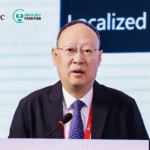
Editor’s Note: The “2025 Pujiang Prostate Cancer Academic Conference,” held from June 27 to 28 in Shanghai, was jointly organized with the Annual Meeting of the Chinese Society of Clinical Oncology Prostate Cancer Committee (CSCO-PC), the Chinese Anti-Cancer Association Genitourinary Oncology (CACA-GO) Prostate Cancer Conference, and the Chinese Prostate Cancer Consortium (CPCC) Annual Meeting. Themed “Global Wisdom · Chinese Practice · Precise Breakthroughs,” the event brought together domestic and international experts to exchange the latest advances and practical experience in prostate cancer.Early Detection through Screening: Improving Early Diagnosis and Treatment of Prostate Cancer in China
01 UroStream – Oncology Frontier
China has a high proportion of late-stage prostate cancer diagnoses at initial presentation, with limited PSA screening. The updated CSCO-PC guidelines emphasize early screening and diagnosis. Based on your clinical experience and the current situation in primary healthcare, how can we overcome barriers to screening?
Prof. Yao Zhu: The latest update to the guideline is significant. We aim to achieve consistency in the diagnosis and treatment of prostate cancer between primary care settings and major medical centers. Many may not realize that prostate cancer is possibly the cancer with the largest survival rate disparity between China and the United States. The 5-year survival rate in China is only 60–70%, while in the U.S., it exceeds 90–95%. The core issue is that prostate cancer in China is typically diagnosed at a later stage.
This stems largely from a lack of public awareness and acceptance of early PSA screening. We hope the updated guideline can promote PSA testing as a routine exam for men over 50 and those with high-risk factors, making it accessible and easy to adopt. Over the past decade, prostate cancer has been one of the fastest-growing malignancies among men in China, and the mortality rate remains high. Therefore, enhancing awareness of standardized screening and early intervention is crucial.
Moreover, under the “Healthy China” initiative, the public has become more conscious of holistic health. PSA testing should be included in regular health check-ups, alongside screening for chronic diseases, lung cancer, and colorectal cancer. A simple blood test can fill this gap and help build a more complete and effective national screening system.
Collaborative Wisdom: Advancing MDT-Based Decision-Making in Prostate Cancer Care
02 UroStream – Oncology Frontier
Patients with intermediate to advanced prostate cancer often require a combination of systemic therapy, radiotherapy, and surgery. Could you share the experience of Fudan University Shanghai Cancer Center in multidisciplinary team (MDT) collaboration?
Prof. Yao Zhu: Under the leadership of Prof. Dingwei Ye, the Department of Urology at Fudan University Shanghai Cancer Center has over two decades of practical MDT experience. We started by learning from international practices and gradually progressed to co-developing new clinical studies with global peers. Over time, we’ve tackled pain points specific to Chinese patients and developed a mature, step-by-step approach to multidisciplinary care.
Today, our MDT model has evolved beyond basic referrals to integrated discussions on combination treatment strategies. Most recently, we’ve incorporated novel drugs, new multidisciplinary techniques, and patient-specific stratification to design innovative comprehensive treatment plans. For instance, our center leads one of the highest numbers of prostate cancer clinical trials in China, offering new treatment opportunities for previously unmet clinical challenges.
As a result, both patients and medical peers increasingly turn to Fudan Cancer Center for expert opinions. We’re honored by this trust and remain committed to improving care for patients with hard-to-treat prostate cancer in China.
“Always One Step Ahead of the Patient”: A Clinical Research Philosophy
03 UroStream – Oncology Frontier
You just mentioned that many clinical trials have achieved promising breakthroughs. We also observe a growing number of RCTs (randomized controlled trials) and IITs (investigator-initiated trials) led by Fudan Cancer Center. In your view, in what areas could China potentially take the global lead in prostate cancer research?
Prof. Yao Zhu: Conducting high-quality clinical research is undoubtedly a key breakthrough in advancing innovative cancer treatments. There remain many gaps in both survival outcomes and quality of life for cancer patients in China, so there is ample room for improvement. On the other hand, clinical trials are a challenging endeavor that demand wisdom, experience, multidisciplinary collaboration, and rigorous statistical analysis. From our perspective, improving both survival and quality of life has always been a top priority. That’s why clinical research, despite being a demanding path, is in fact one of the most direct and effective means to improve patient outcomes.
At Fudan Cancer Center, we’ve taken one solid step at a time—from participating in international multicenter clinical trials to refining our clinical research systems and patient management practices. Gradually, we’ve begun to lead national and even international studies, exploring new clinical scenarios and unmet needs, and eventually designing and spearheading trials to better serve patients. Throughout this process, we’ve gained invaluable experience that enables us to offer more tailored and effective treatments.
When designing clinical studies, we always adhere to a philosophy of “being one step ahead of the patient.” Looking ahead, we aim to transform these research achievements into practical treatment solutions and recommendations, ultimately delivering greater hope to patients.



